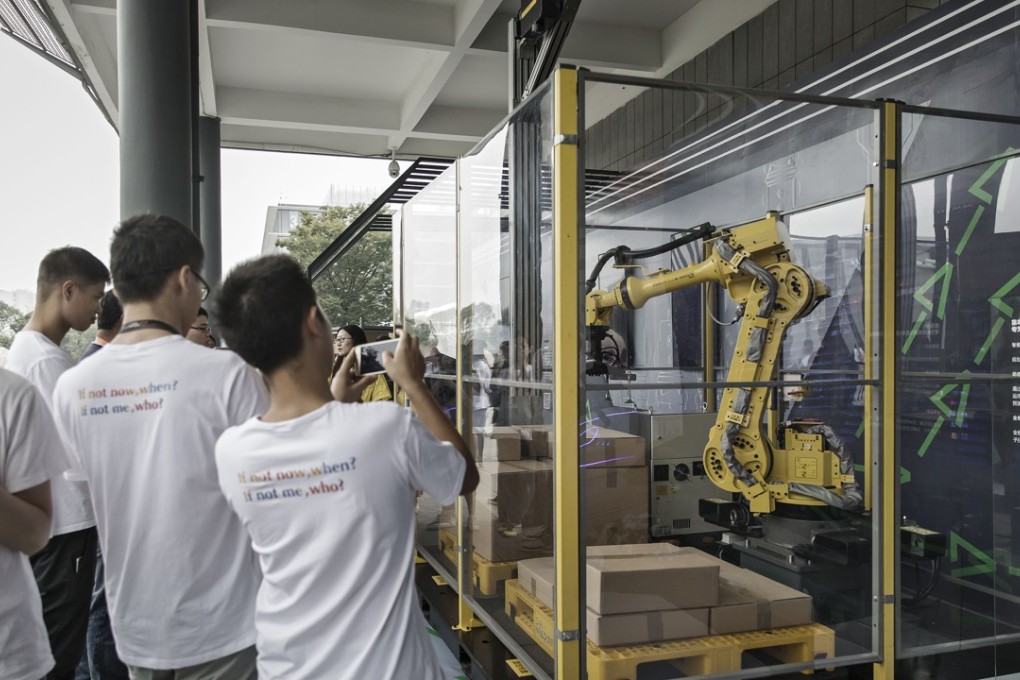How Singles’ Day has helped Alibaba ascend on an AI-powered cloud in China
- The world’s largest shopping festival is also the day that Alibaba pushes the boundaries on its technology and services
- By combining big data, artificial intelligence and cloud computing, Alibaba can offer an AI platform for business solutions

Within minutes of the clock striking midnight on November 11 this year, consumers across China will be racking up billions in purchases on Alibaba’s e-commerce marketplaces. Alibaba engineers and employees watching the transaction numbers on big screens will whoop as the figure instantly crosses the hundred million yuan mark, then zooms into the billions.
As the orders start to roll in, the company’s proprietary cloud computing platform Alibaba Cloud will, at its peak, process hundreds of thousands in transactions and payments per second. Robots in the automated warehouses of Alibaba’s logistics arm Cainiao will begin sorting and packing the orders that come in, readying them for the battalion of trucks, scooters and millions of deliverymen that will send an estimated 1 billion packages to their rightful owners within days of November 11.
For China’s largest e-commerce firm, Singles’ Day is not just its most important shopping event of the year. It is also the day that the Alibaba pushes the boundaries on its technology and services, stress-testing its technology systems during the world’s largest shopping festival that grows in scale every year.
The technology and innovation that Alibaba has developed to serve the needs that arise from Singles’ Day have allowed Alibaba to expand into a variety of services, including Alibaba Cloud, logistics, and artificial intelligence.
Take Alibaba Cloud for example. Alibaba’s cloud computing arm was borne out of a belief by Alibaba co-founder and executive chairman Jack Ma that it was important for the Hangzhou-based firm to develop its own core technology.
Before 2008, Alibaba relied heavily on technology from Yahoo, one of Alibaba’s largest shareholders, according to Wang Jian, who served as president of Alibaba Cloud since its inception in 2009 until September 2013.